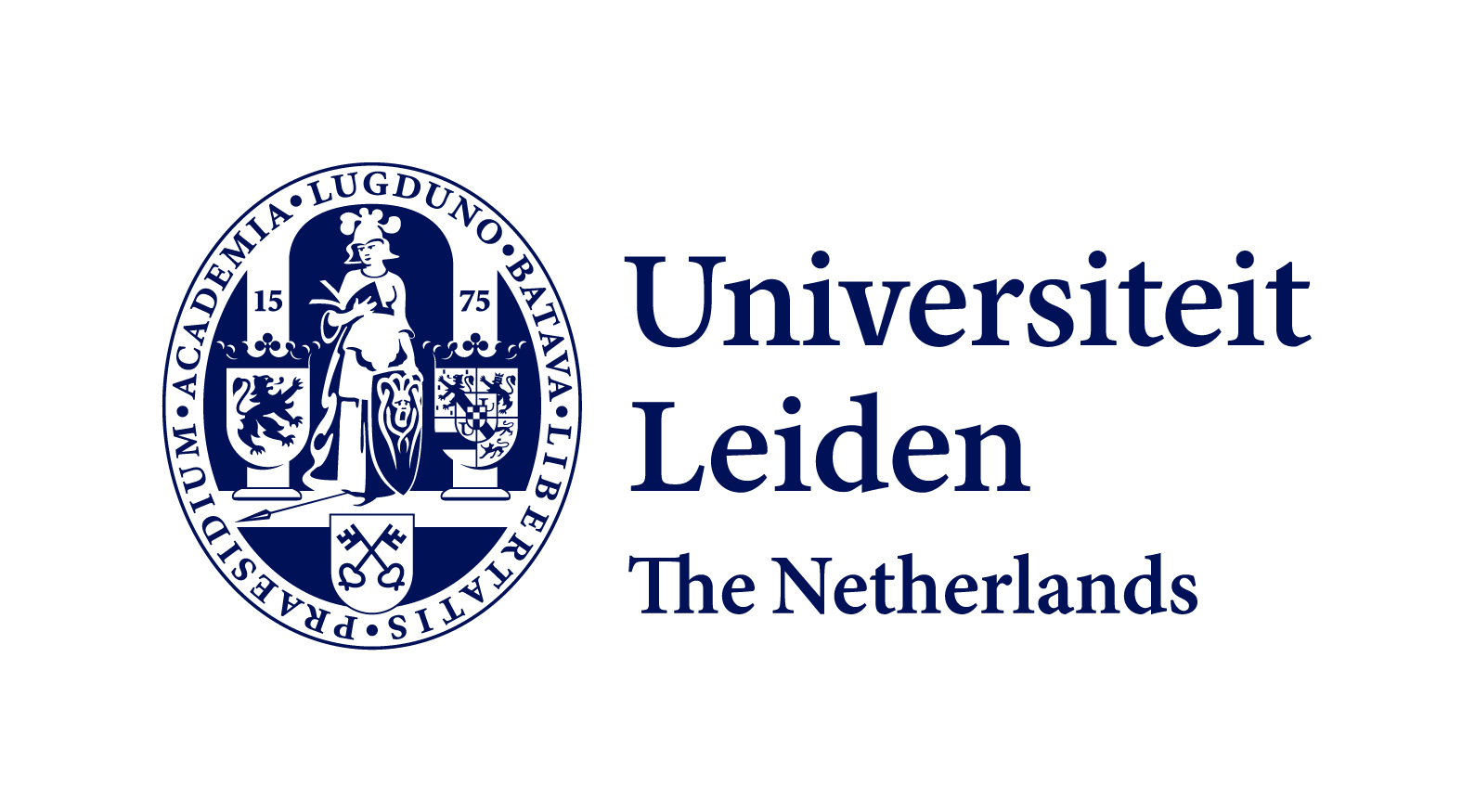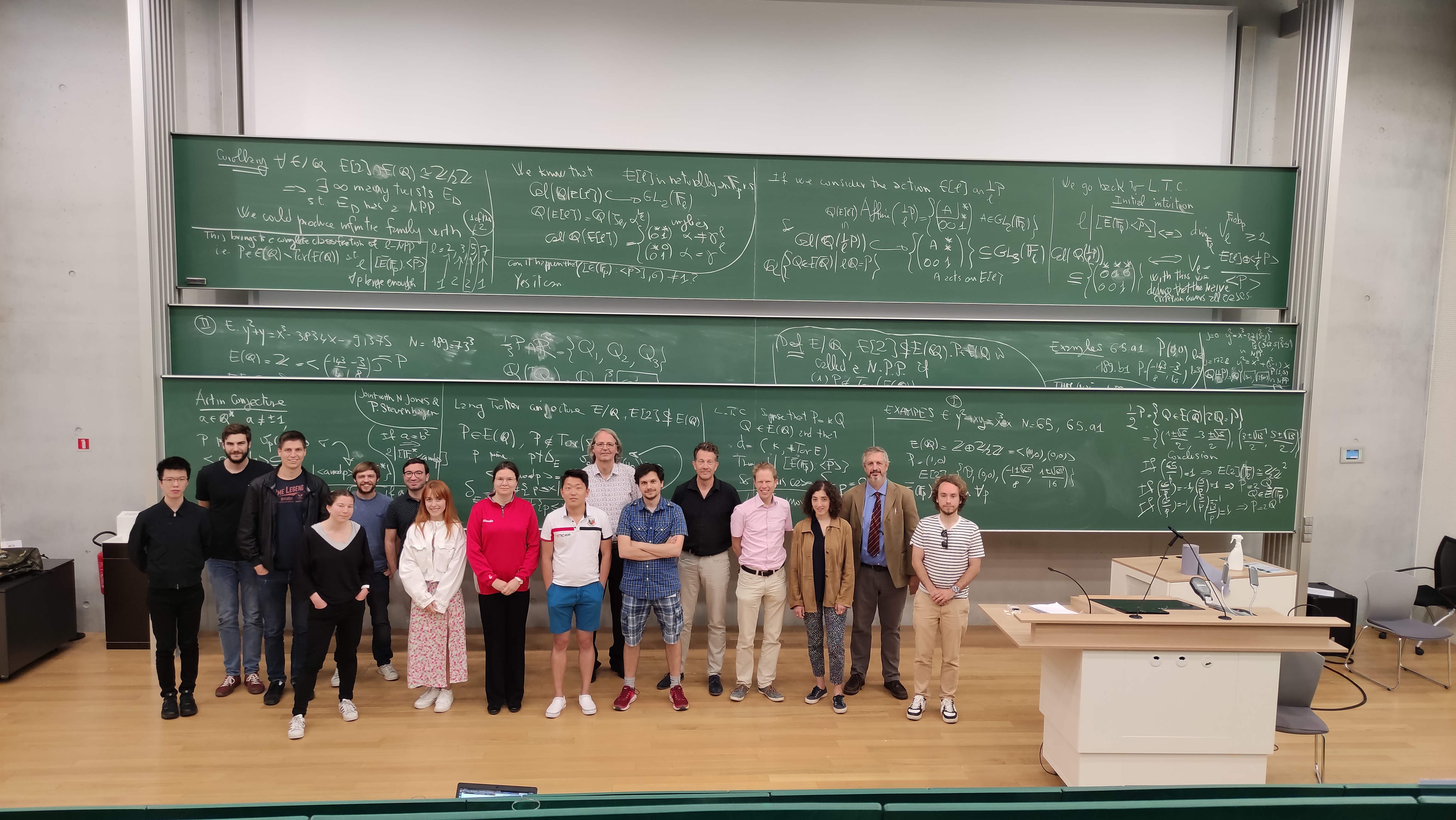
Leiden-Luxembourg Number Theory PhD Day 2022
July 5-6, 2022



The second edition of the Leiden-Luxembourg Number Theory PhD day will take place on July 5th, 2022 at the University of Luxembourg. PhD students in number theory from both universities will give talks and discuss with each other about their research.
On the following day, in the afternoon, there will be Pietro Sgobba's PhD defence. The members of the commision will give talks on the morning.
Location: University of Luxembourg, Campus Belval, Maison du Savoir (MSA) and Maison du Nombre (MNO) Open Street Maps, Google maps
Webex link: Available on request, contact us
Tuesday, July 5th
| Time | Speaker - activity | Title | Room |
| 9:30 - 10:30 | Office tour + PhD round table discussion | MNO | |
| 10:30 - 11:00 | Coffee break | MNO | |
| 11:00 - 11:30 | Sebastiano Tronto (Luxembourg / Leiden) | My journey in Kummer theory | MSA 3.160 |
| 11:30 - 12:00 | Alex Braat (Leiden) | The graph method for computing modular forms | MSA 3.160 |
| 12:00 - 13:30 | Lunch | ||
| 13:30 - 14:00 | Mike Daas (Leiden) | Mysterious factorisations and Knopp's cocycle | MSA 3.160 |
| 14:00 - 14:30 | Charlotte Dombrowski (Leiden) | Solutions of the cubic Fermat equation in quadratic fields | MSA 3.160 |
| 14:30 - 15:00 | Coffee break | ||
| 15:00 - 15:30 | Margherita Pagano (Leiden) | Differential forms and Brauer-Manin obstruction | MSA 3.160 |
| 15:30 - 16:00 | Xiao Yang (Leiden) | The adelic Hasse principle of schemes of finite type over Z | MSA 3.160 |
| 16:00 - 16:30 | Coffee break | ||
| 16:30 - 17:00 | Flavio Perissinotto (Luxembourg / Leiden) | Kummer theory for p-adic fields | MSA 3.160 |
| 17:00 - 18:00 | Peter Stevenhagen (Leiden) | Artin-type density conjectures with and without GRH | MSA 3.160 |
| 19:00 - | Dinner |
Wednesday, July 6th
| Time | Speaker - activity | Title | Room |
| 9:30 - 10:30 | Pieter Moree (Max Planck Institute, Bonn) | Euler-Kronecker constants and cusp forms | MSA 3.160 |
| 10:30 - 11:00 | Antigona Pajaziti (Sabancı University) | Orders of reductions of an elliptic curve in arithmetic progressions | MSA 3.160 |
| 11:00 - 11:30 | Coffee break | ||
| 11:30 - 12:30 | Francesco Pappalardi (Roma Tre University, Rome) | Local conditions connected with the Lang-Trotter Conjecture for primitive points | MSA 3.160 |
| 12:30 - 14:00 | Lunch | ||
| 14:00 - 15:00 | Pietro Sgobba's PhD defence | Reductions of algebraic numbers and Artin's conjecture on primitive roots | MNO 1.040 |
| 15:00 - 15:30 | Break | ||
| 15:30 - | Result announcement |
Mike Daas Mysterious factorisations and Knopp's cocycle
Building on Knopp's seminal 1978 paper, recently Vonk and Darmon have revived interest in a particular class of rational function-valued 1-cocycles. Even though their approach is p-adic, in this talk, we define and explore essentially the same cocycle but over the reals instead. Some of its special values seem to be contained in smaller fields than one would expect. We will find that this is a consequence of seemingly mysterious factorisations occuring for certain elements in totally real biquadratic fields, uncovering a possibly hidden structure of the action of GL2(Q) on the elements of such fields.
Charlotte Dombrowsky Solutions of the cubic Fermat equation in quadratic fields
It is known that the equation x3+y3=x3 has no non trivial solutions in Q. In this talk, we present a paper due to Jones and Rouse, giving necessary and sufficient conditions on a squarefree integer d for there to be non trivial solutions to x3+y3=x3 in Q(√d).
Pieter Moree Euler-Kronecker constants and cusp forms
Ramanujan, in a manuscript not published during his life time, made a very precise conjecture for how many integers n ≤ x the Ramanujan tau function τ(n) is not divisible by 691 (and likewise for some other primes). The τ(n) are the Fourier coefficients of the Δ-function, which is a cusp form for the full modular group. Rankin proved that Ramanujan's claim is asymptotically correct. The speaker in 2004, however, showed that the second order behavior predicted by Ramanujan does not match reality. The proof makes use of high precision computation of constants akin to the Euler-Mascheroni constant called Euler-Kronecker constants. Recently the author, joint with Ciolan and Languasco studied the analogue of Ramanujan's conjecture for the exceptional primes, as classified by Serre and Swinnerton-Dyer, for the 5 cups forms akin to Δ for which the space of cusp forms is 1-dimensional. The tool for this is a high-precision evaluation of the number of integers n ≤ x for which a precribed integer q does not divide the k-th sum of divisors function, sharpening earlier work of Rankin and Scourfield. In my talk I will report on generalities on Euler-Kronecker constants and the above work, with ample historical material.
Antigona Pajaziti Orders of reductions of an elliptic curve in arithmetic progressions
Let E be an elliptic curve defined over a number field K with ring of integers R. We consider the set S of all the orders of reductions of E modulo the primes of R. Given an integer m > 1, one may ask how many residue classes modulo m have an intersection of positive density with S. Using results of Serre and Katz, we show that there are at least two such residue classes; except for explicit families of elliptic curves and corresponding values of m. We then describe this exceptional set of elliptic curves and list the values of m when K is of degree at most 3; or K is Galois of degree 4.
Flavio Perissinotto Kummer theory for p-adic fields
Let K be a finite extension of Qp and let G be a finitely generated subgroup of K⨯. We compute, for any positive integers N, M with M dividing N, the degrees of the Kummer extension K(ζN, M√G)/K(ζN). We show how to adapt to p-adic fields the results for the same problem over number fields.
Pietro Sgobba Reductions of algebraic numbers and Artin's conjecture on primitive roots
In 1967 Hooley proved (under GRH) Artin's conjecture on primitive roots: for any g∈Z\{-1,0,1} which is not a square, there are infinitely many primes p such that g is a primitive root modulo p (i.e. the multiplicative order of (g mod p equals p-1). We consider some variations of this problem over number fields for the order of the reductions of algebraic numbers. Let K be a number field and let G be a finitely generated group of algebraic numbers. We investigate the primes p of K (up to discarding finitely many of them) such that the order of (G mod p) is divisible by a given integer, or more generally such that it lies in a given arithmetic progression. Some of our results generalize previous work by Pappalardi, Moree and by Ziegler.
Sebastiano Tronto My journey in Kummer theory
Kummer theory is the branch of number theory that studies extensions of a base field, usually a number field such as the field of rational numbers, generated by the n-th roots of some given element. More generally, one can study the extensions generated by n-th division points of some set of points of a commutative algebraic group defined over the base field. Of particular interest in this context are the degrees of such field extensions, that appear for example in the solution to problems related to Artin's primitive root conjecture. Classical results by Ribet and others provide lower bounds for these degrees, and there has recently been progress in making such results effective and explicit. In this talk I will present my research on the topic, following the timeline of my PhD years.
Xiao Yang The adelic Hasse principle of schemes of finite type over Z
The Hasse principle is the "local-global philosophy" for Diophantine equations. Let k be a number field. We say a scheme or a family of schemes satisfies the Hasse principle if the existence of kv-points for all places v on k implies (or is equivalent to) the existence of k-points. In modern literature, when people say the "Hasse principle", they mean that the existence of the adelic points implies (or is equivalent to) the existence of k-points. However, it is not mentioned or clarified in any literature, as much as I have read, whether these two definitions are the equivalent. In this talk, we shall explore this more into details.

Event organized in the context of the Leiden-Luxembourg cotutelle PhD programme.
Contact: Flavio Perissinotto, Sebastiano Tronto